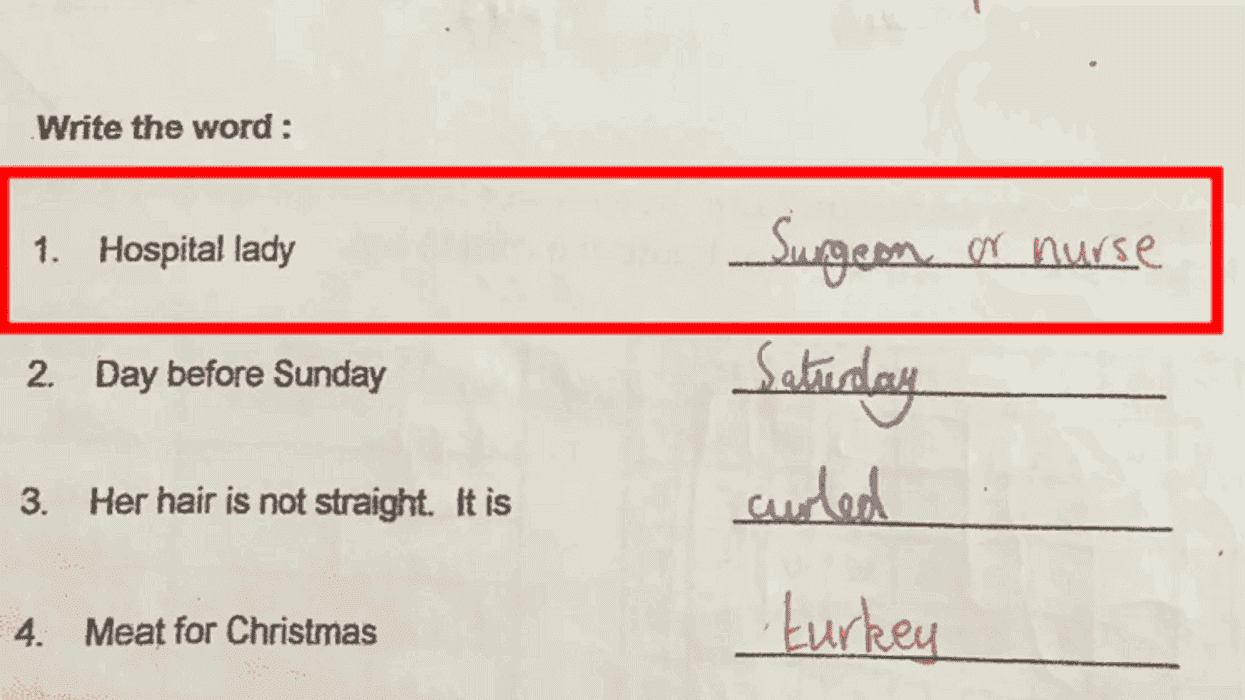In a typical work day, people who smoke take more breaks than those who do not. Every few hours they pop outside to have a smoke and usually take a coworker with them.
Don Bryden, Managing director at KCJ Training and Employment Solutions in Swindon, England, thinks that nonsmokers and smokers should be treated equally, so he's giving those who refrain from smoking four extra days to compensate.
Funny enough, Bryden is a smoker himself.
"I'm not discriminating against anyone," he told the BBC. "What I'm saying is if you take a smoke break, fine, take a smoke break. I'm not saying stop that."
"But if you say it's three 10-minute smoke breaks a day that equates to 16 and a quarter days a year based on an eight-hour working day."
The move is a great way to level the playing field in the office and to encourage his co workers to live healthier lifestyles as well.
RELATED: Single dad's viral post to his employees demands they have a social life. Boss of the year.
"I've been asked if someone doesn't smoke for three months, will I give them a day off, and I said of course," he said. "And if they can do it for six months I'll give them two days.
Bryden doesn't believe in discriminating against smokers, but rewarding those who do not for their extra time spent at their desks. "I'll work with the people who smoke but I do want to make sure that the ones who are sitting there working while the others take their ciggie break get some sort of compensation," he said.
The folks at the Centers for Disease Control would agree with Bryden's policy. According to its studies cigarette smoking and secondhand smoke cost $92 billion in productivity losses annually.
Smokers miss time in the office to go outside and blow a butt and they also take more days off. Smokers, on average, miss 6.16 days of work per year due to sickness (including smoking related acute and chronic conditions), compared to nonsmokers, who miss 3.86 days of work per year.
RELATED: Why one boss's response to an employee's mental health request went viral.
On a deeper level, we all pay for the exceptional health costs associated with smoking. Smokers add additional medical costs to both private and public health programs that nonsmokers pay into as well.
How much cheaper would health insurance cost if companies didn't have to pay for lung caner treatments?
According to a study published by the Public Library of Science, smokers cost the U.S. an estimated $300 billion a year. This includes nearly $170 billion in direct medical care for adults and more than $156 billion in lost productivity due to premature death and exposure to secondhand smoke.
Those who choose to live healthy have a positive effect on everyone around them. Bryden is right to reward them for their efforts and hopefully more employers will look into implementing at similar policies.

















 Oral Wegovy pills were approved by the Food and Drug Administration in December 2025 and became available for purchase in the U.S. in January 2026.
Oral Wegovy pills were approved by the Food and Drug Administration in December 2025 and became available for purchase in the U.S. in January 2026. Despite the effectiveness of GLP-1 drugs for weight loss, there is still no replacement for healthy lifestyle patterns, including regular exercise.
Despite the effectiveness of GLP-1 drugs for weight loss, there is still no replacement for healthy lifestyle patterns, including regular exercise.


 What foods would you pick without diet culture telling you what to do?
What foods would you pick without diet culture telling you what to do?  Flexibility can help you adapt to – and enjoy – different food situations.
Flexibility can help you adapt to – and enjoy – different food situations.
 Anxious young woman in the rain.Photo credit
Anxious young woman in the rain.Photo credit  Woman takes notes.Photo credit
Woman takes notes.Photo credit 
 Revenge can feel easier than forgiveness, which often brings sadness or anxiety.
Revenge can feel easier than forgiveness, which often brings sadness or anxiety. 
 In the past two years, two malaria vaccines have become available for babies starting at 5 months of age.
In the past two years, two malaria vaccines have become available for babies starting at 5 months of age. By exploiting vulnerabilities in the malaria parasite’s defense system, researchers hope to develop a treatment that blocks the parasite from entering cells.
By exploiting vulnerabilities in the malaria parasite’s defense system, researchers hope to develop a treatment that blocks the parasite from entering cells. Created with
Created with